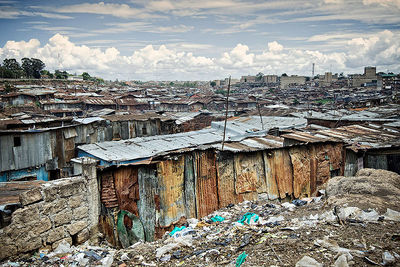imported>Chunbum Park |
imported>John Stephenson |
| (117 intermediate revisions by 5 users not shown) |
| Line 1: |
Line 1: |
| == '''[[Economics]]''' ==
| | {{:{{FeaturedArticleTitle}}}} |
| ----
| | <small> |
| The term '''economics''' refers both to an intellectual discipline and to a profession.
| | ==Footnotes== |
| | |
| The intellectual discipline of economics is an attempt to gain an understanding of the processes that govern the production, distribution and consumption of [[wealth (economics)|wealth]], and to use that understanding to assist in the prediction of the consequences of economic activities. It uses the methodology of [[science]] and can be considered to be a science insofar as it produces testable propositions (see [[/Tutorials#Economics as a science|economics as a science]]), although some branches of the subject are widely considered to be normative (see [[/Tutorials#Normative economics|normative economics]]). Like other sciences, it is subject to a continuing process of revision.
| |
| | |
| The profession of economics includes academics<ref>For a light-hearted look at the life of an academic economist, see Axel Leijonhufvud's ''Life among the Econs''[http://www.kysq.org/diss/LifeamongtheEcon.pdf]</ref> who construct, develop and teach economic theory, and practitioners who use economic theory to make forecasts or to advise upon political, commercial and regulatory decisions. Its most influential application is to the management of the economy. Mistaken decisions in that context can do more damage than in most others.
| |
| | |
| ===The methodology of economics=== | |
| The traditional methodology of economics has been first to formulate a theory, and then to examine how far it provides operationally useful conclusions. Its pioneers have often adopted an [[instrumentalism|instrumentalist]] approach: basing a theory on arbitrary axioms - such as consistently rational human behaviour - and then advocating its acceptance solely on the grounds that it had provided operationally useful results. That methodology has proved to be vulnerable to changing conditions, however, and there has recently been a tendency to move away from an exclusively axiom-based approach towards a greater recognition of observed behaviour. Among the techniques that have been coming into use for that purpose are those of [[Philosophy of economics#Behavioural economics|behavioural economics]] and [[neuroeconomics]].
| |
| | |
| ''[[Economics|.... (read more)]]''
| |
| | |
| {| class="wikitable collapsible collapsed" style="width: 90%; float: center; margin: 0.5em 1em 0.8em 0px;"
| |
| |-
| |
| ! style="text-align: center;" | [[Economics#References|notes]]
| |
| |-
| |
| |
| |
| {{reflist|2}} | | {{reflist|2}} |
| |}
| | </small> |
Latest revision as of 09:19, 11 September 2020

The Mathare Valley slum near Nairobi, Kenya, in 2009.
Poverty is deprivation based on lack of material resources. The concept is value-based and political. Hence its definition, causes and remedies (and the possibility of remedies) are highly contentious.[1] The word poverty may also be used figuratively to indicate a lack, instead of material goods or money, of any kind of quality, as in a poverty of imagination.
Definitions
Primary and secondary poverty
The use of the terms primary and secondary poverty dates back to Seebohm Rowntree, who conducted the second British survey to calculate the extent of poverty. This was carried out in York and was published in 1899. He defined primary poverty as having insufficient income to “obtain the minimum necessaries for the maintenance of merely physical efficiency”. In secondary poverty, the income “would be sufficient for the maintenance of merely physical efficiency were it not that some portion of it is absorbed by some other expenditure.” Even with these rigorous criteria he found that 9.9% of the population was in primary poverty and a further 17.9% in secondary.[2]
Absolute and comparative poverty
More recent definitions tend to use the terms absolute and comparative poverty. Absolute is in line with Rowntree's primary poverty, but comparative poverty is usually expressed in terms of ability to play a part in the society in which a person lives. Comparative poverty will thus vary from one country to another.[3] The difficulty of definition is illustrated by the fact that a recession can actually reduce "poverty".
Causes of poverty
The causes of poverty most often considered are:
- Character defects
- An established “culture of poverty”, with low expectations handed down from one generation to another
- Unemployment
- Irregular employment, and/or low pay
- Position in the life cycle (see below) and household size
- Disability
- Structural inequality, both within countries and between countries. (R H Tawney: “What thoughtful rich people call the problem of poverty, thoughtful poor people call with equal justice a problem of riches”)[4]
As noted above, most of these, or the extent to which they can be, or should be changed, are matters of heated controversy.
- ↑ Alcock, P. Understanding poverty. Macmillan. 1997. ch 1.
- ↑ Harris, B. The origins of the British welfare state. Palgrave Macmillan. 2004. Also, Oxford Dictionary of National Biography.
- ↑ Alcock, Pt II
- ↑ Alcock, Preface to 1st edition and pt III.
